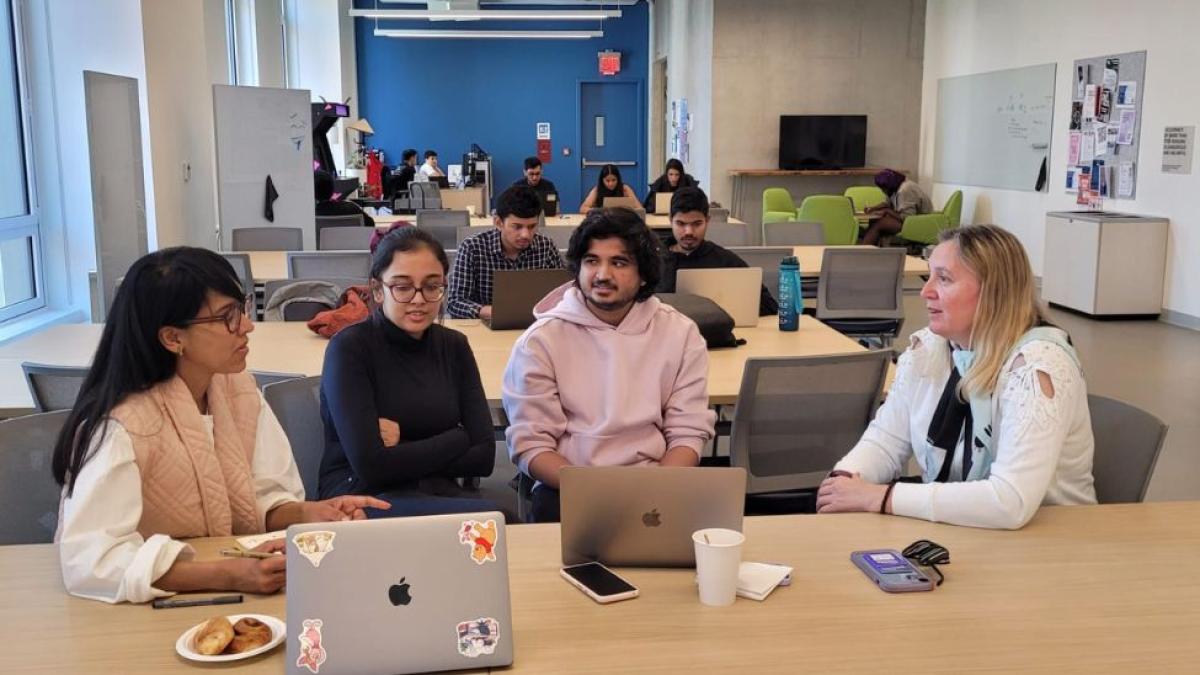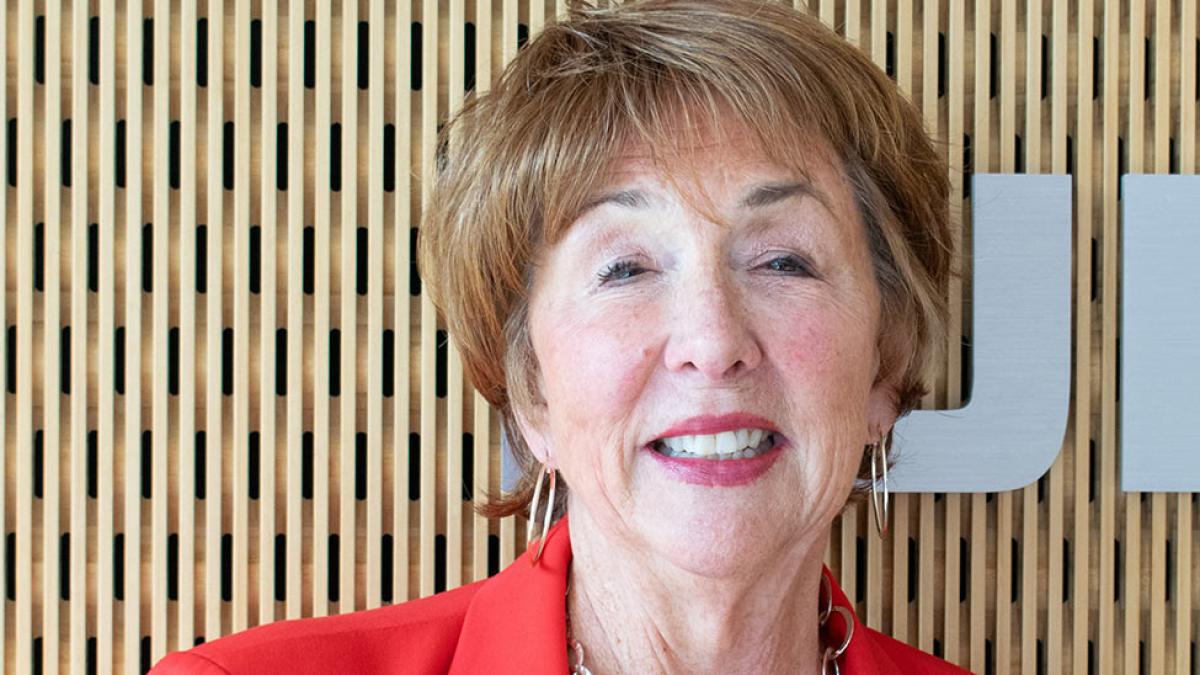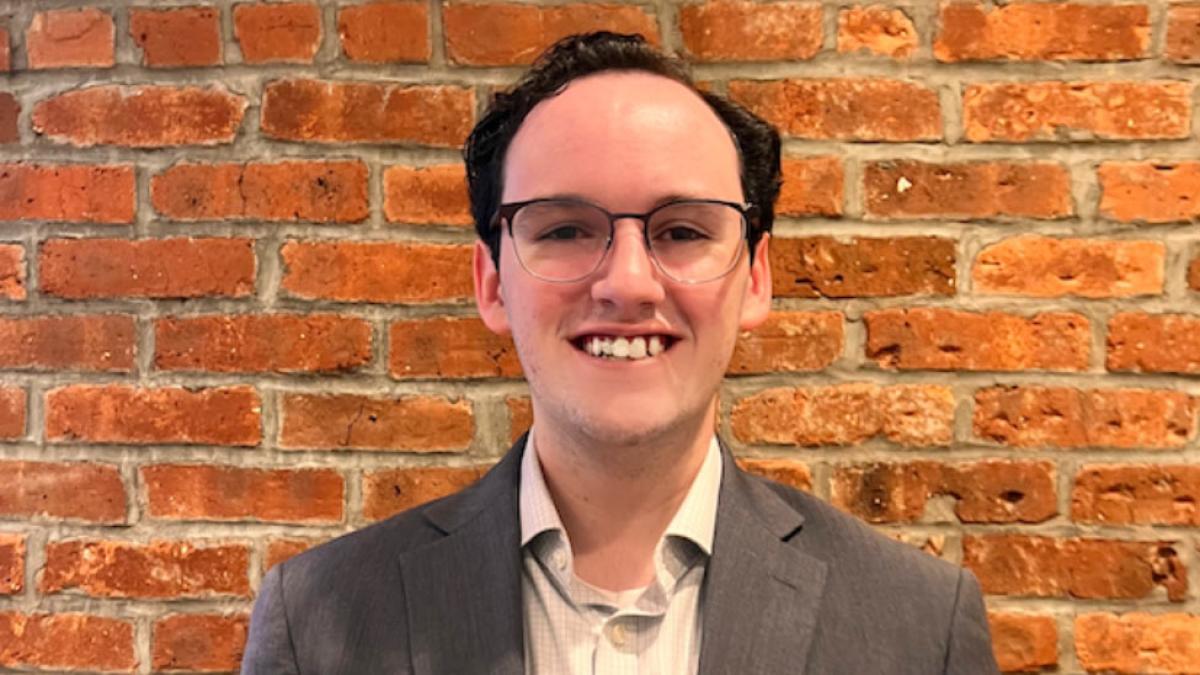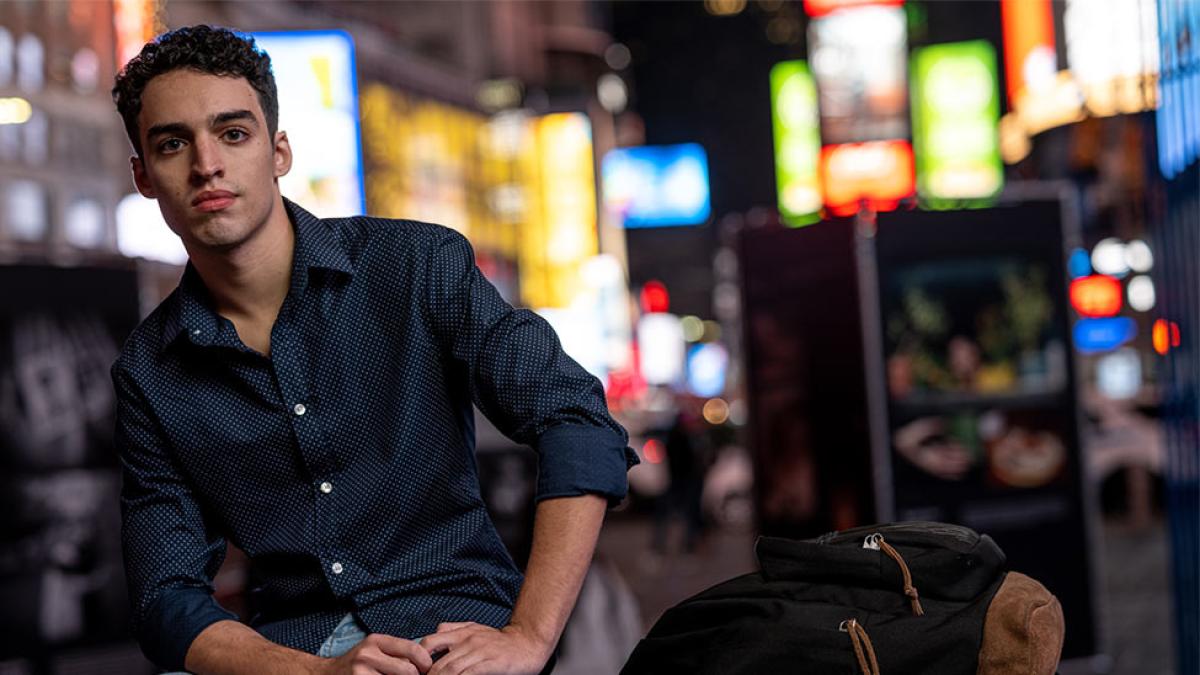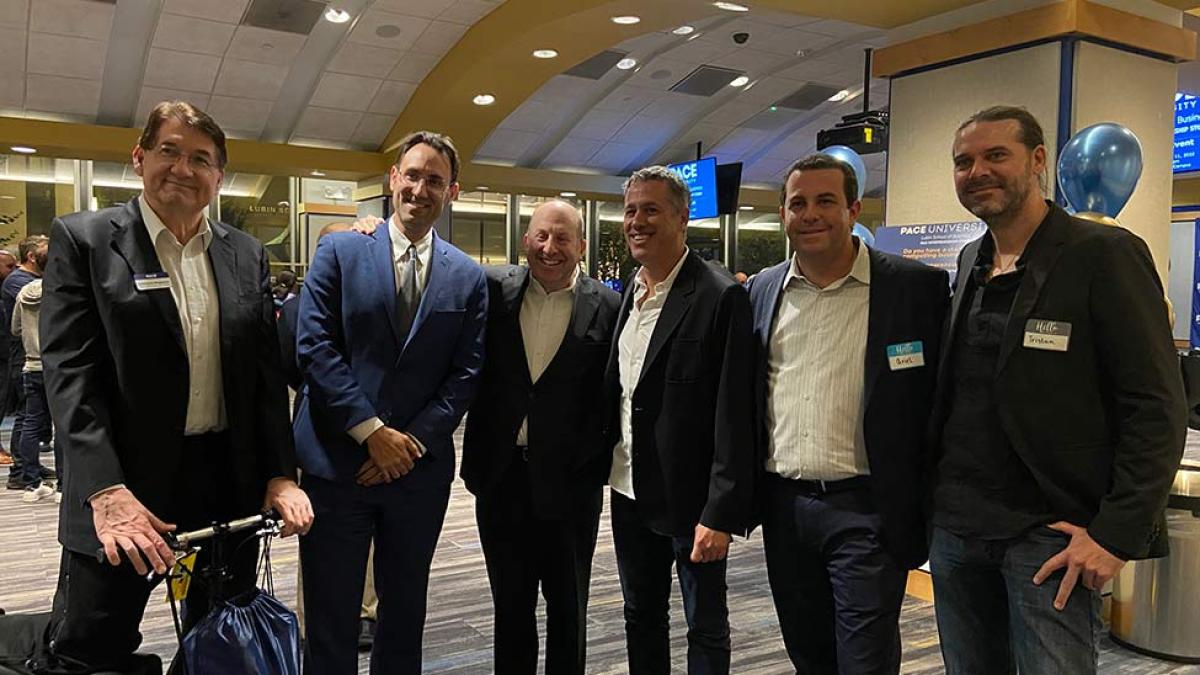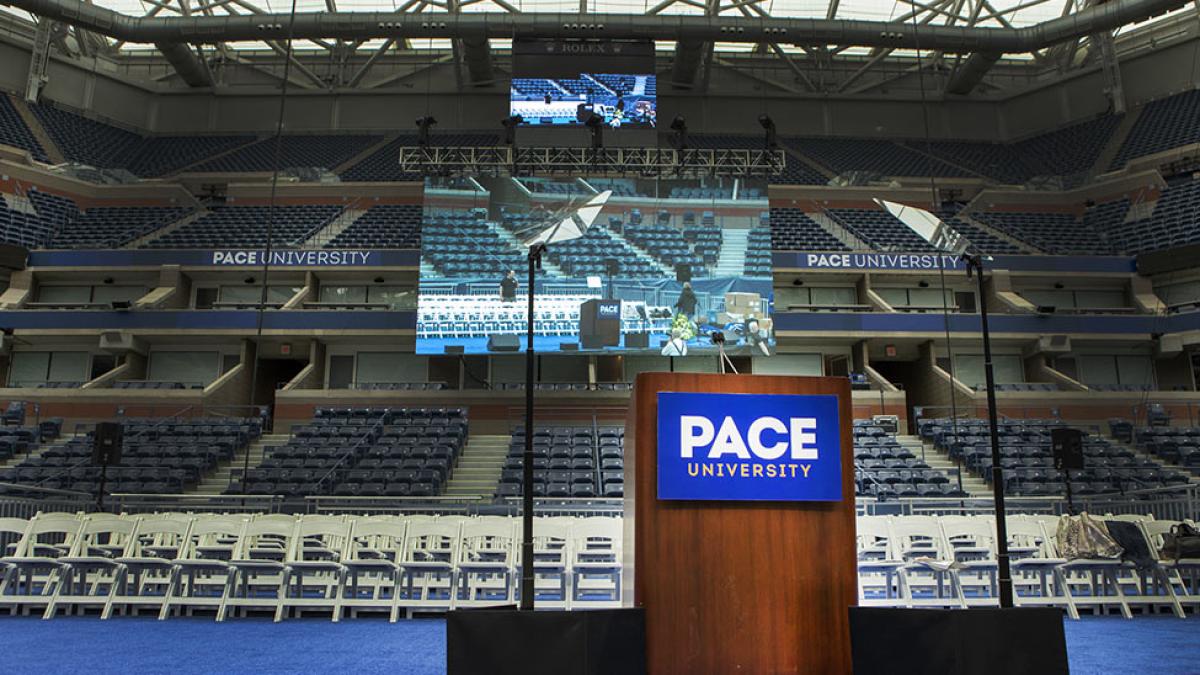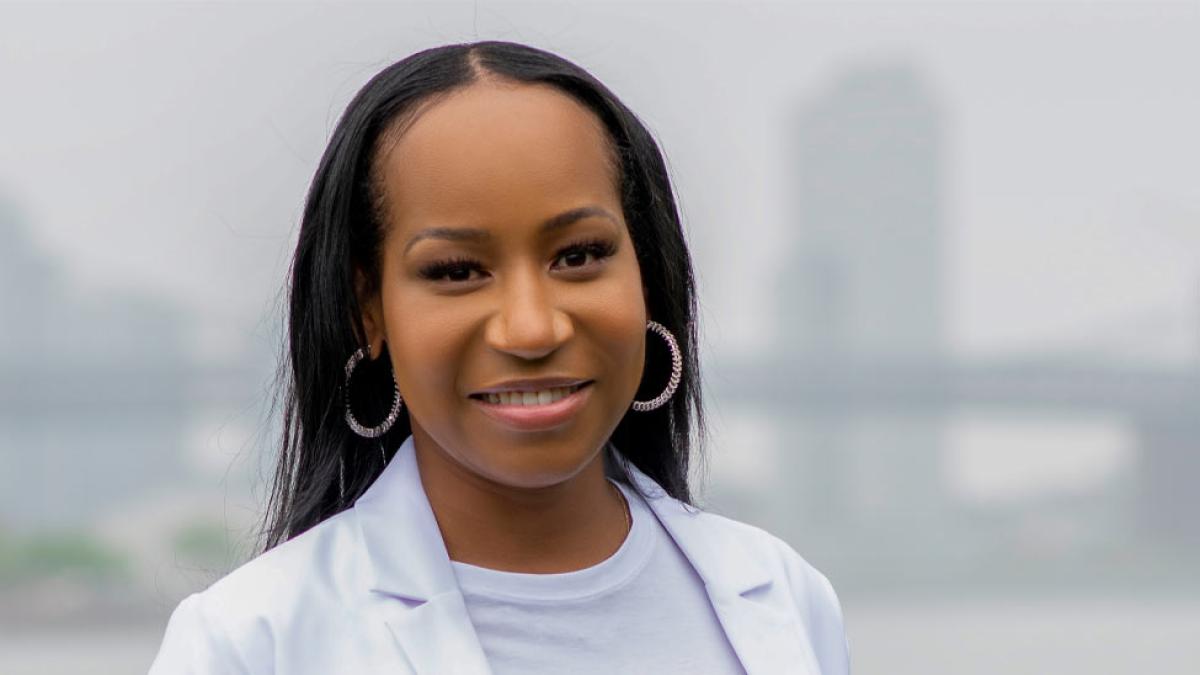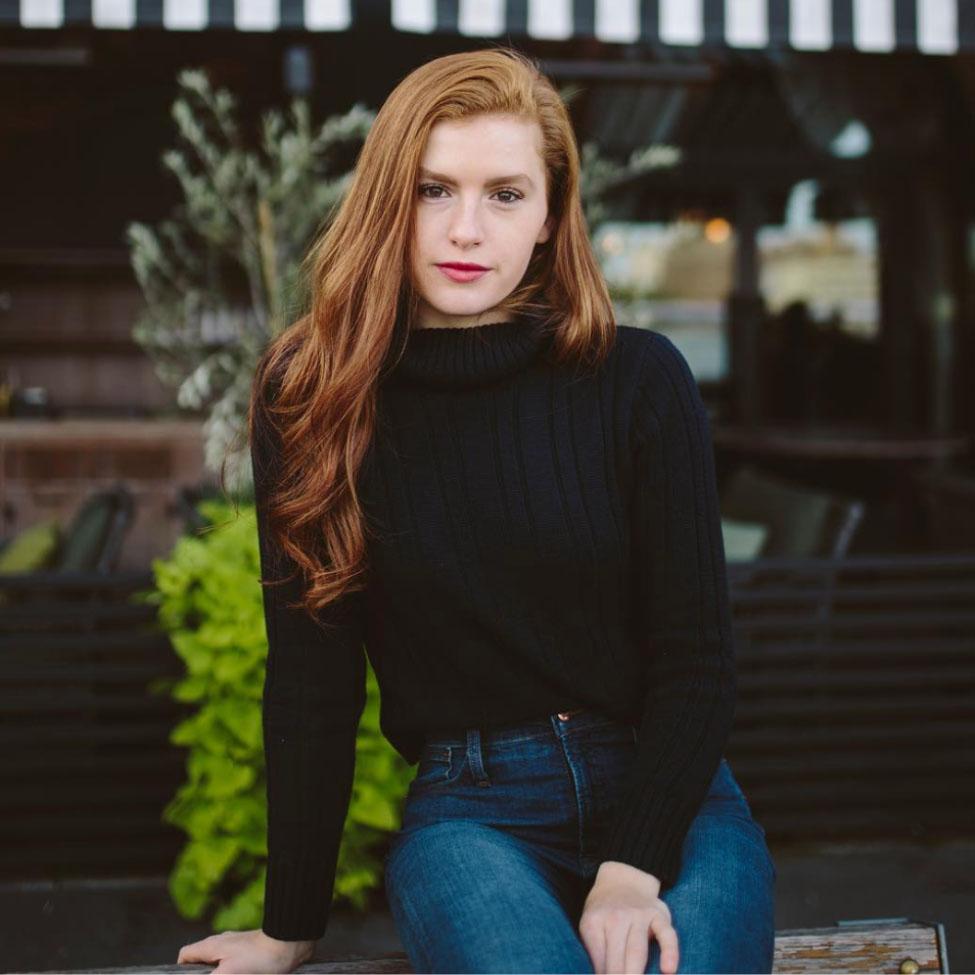
Activism or Slacktivism: Researching the Impact of Social Media on Charitable Donations
If there’s one problem the nonprofit world would love to solve, it’s how to increase funding. Information technology professor, Namchul Shin, researches the impact of social media on charitable donations.


If there’s one problem the nonprofit world would love to solve, it’s how to increase funding. Organizations go to great lengths to solicit donations for their causes—and one increasingly popular method is by using social media.
“Nonprofit organizations are increasingly using social media for communication and relationship building,” says Dr. Namchul Shin, Professor and Associate Chair of the Seidenberg Information Technology department.
While there has been extensive research in how nonprofits use social media, there has been little research on the impact. Dr. Shin’s research, which he presented at the 33rd Annual IIMA Conference in Seattle on October 24–26, 2022, aimed to address the gap.
There are various topics, technological and social, that we can study and teach. But one of the areas I like most is how to best use technology to create value—not just economic, but social—and how to mitigate harm for society.
—Namchul Shin, Professor of Information Technology
Taking a deep dive into the relationship between social media usage and the impact—that is, the volume of charitable donations—Dr. Shin, alongside Taojin Lou and Mansi Modi, students from Pace’s MBA program, utilized a large data set of the top 100 nonprofits as listed by the Nonprofit Times, ranked by revenue. Various aspects were used to measure social media traction: likes and follower count, for starters.
"It is important to understand how fundraising is influenced by the use of social media," said Dr. Shin. As an information systems professor, his interest is multi-faceted. “We are not just focusing on technology, but also human-centered research. There are various topics, technological and social, that we can study and teach. But one of the areas I like most is how to best use technology to create value—not just economic, but social—and how to mitigate harm for society.”
The results painted an interesting picture. It turns out that social media usage can indeed contribute to charitable giving. "Social media can attract more supporters to nonprofit organizations' social media pages and help promote better communications and relationship building, thereby increasing donations."
But it doesn't end there. Comparing Facebook likes and Twitter followers revealed that different platforms have different impacts on public engagement in fundraising campaigns. "The number of followers on Twitter is highly associated with increased donations, but not the number of likes on Facebook," said Dr. Shin. "The results imply that simply clicking the like button on Facebook might be just self-serving slacktivism."
Dr. Shin is a Wilson Center Fellow in Pace University’s Wilson Center Fellowship program, which supports social change through entrepreneurship and the creation of a diverse body of research that identifies and addresses issues facing nonprofits and social enterprises.
Balancing Business and Fitness With Ginny King '20
Lubin alumna Ginny King '20 talks about how she landed her dream role with NBC, after the pandemic crushed her original post-graduation plans. She discusses the importance of working hard and taking advantage of the opportunities that Pace University offers.
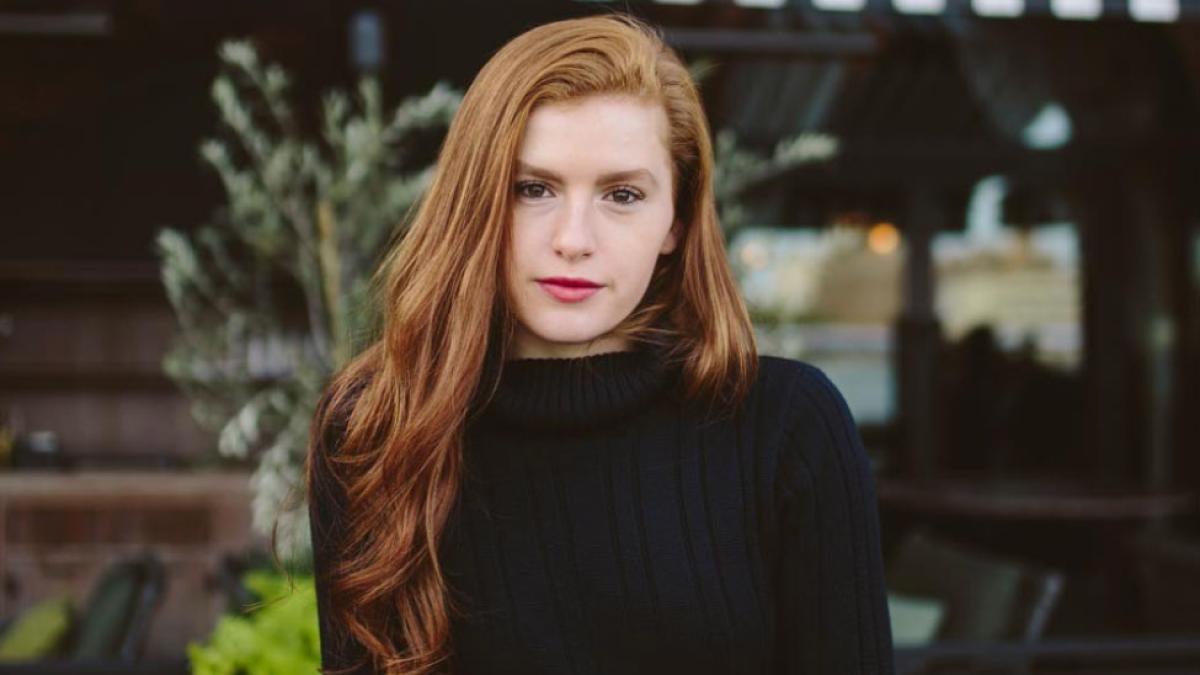
The Lubin Link Podcast

Ginny King '20 details how she landed her dream role with NBC, after the pandemic crushed her original post-graduation plans. She discusses the importance of working hard and taking advantage of the opportunities that Pace University offers.
This episode was recorded on November 15, 2022.
Tune into the Lubin Link podcast to hear how guests went from go-getting Lubin students to successful entrepreneurs, social media mavens, directors, CEOs, and beyond. They offer their best tips to students and share how you can make the most out of your #LubinLife.
Pace University Unveils State-Of-The-Art Esports Center
Pace University unveiled a dedicated Esports arena on 33 Beekman Street, the tallest university residence hall in the world, highlighting the rapidly growing gaming industry. This highly visible and state-of-the-art space will act as a home for the competitive student gamers, combining competition and academics.
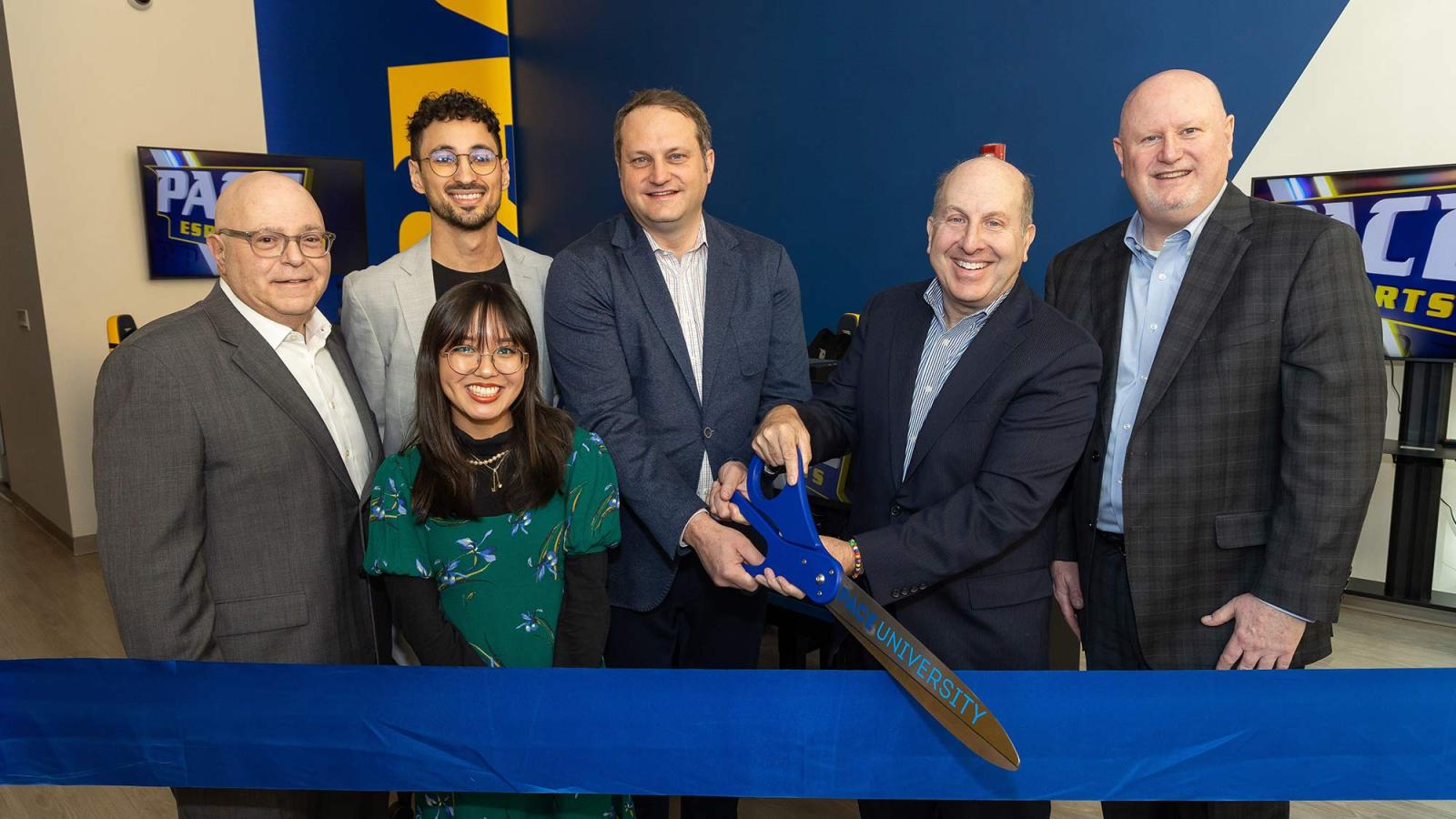
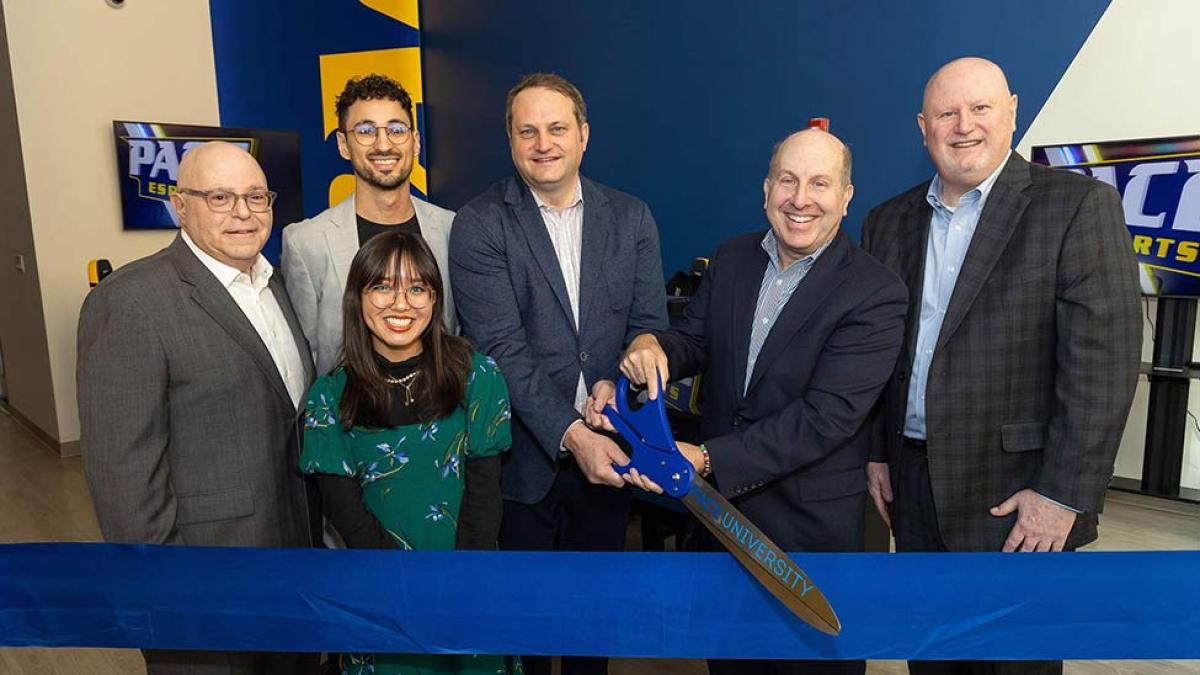
Pace University unveiled a dedicated Esports arena on 33 Beekman Street, the tallest university residence hall in the world, highlighting the rapidly growing gaming industry. This highly visible and state-of-the-art space will act as a home for the competitive student gamers, combining competition and academics.
The Esports program aims to propel the future of gaming through curricular and vocational pathways, marrying the Pace University Athletics Department and the Seidenberg School of Computer Science and Information Systems. The Esports center was funded by Dov Horowitz ’05, through his company American Technology Services.
“Gaming was a critical element to my early career success and the chance to help others use gaming was a gift I simply couldn’t pass up,” said founding partner, Dov Horowitz ’05, in his remarks at the ribbon-cutting event.
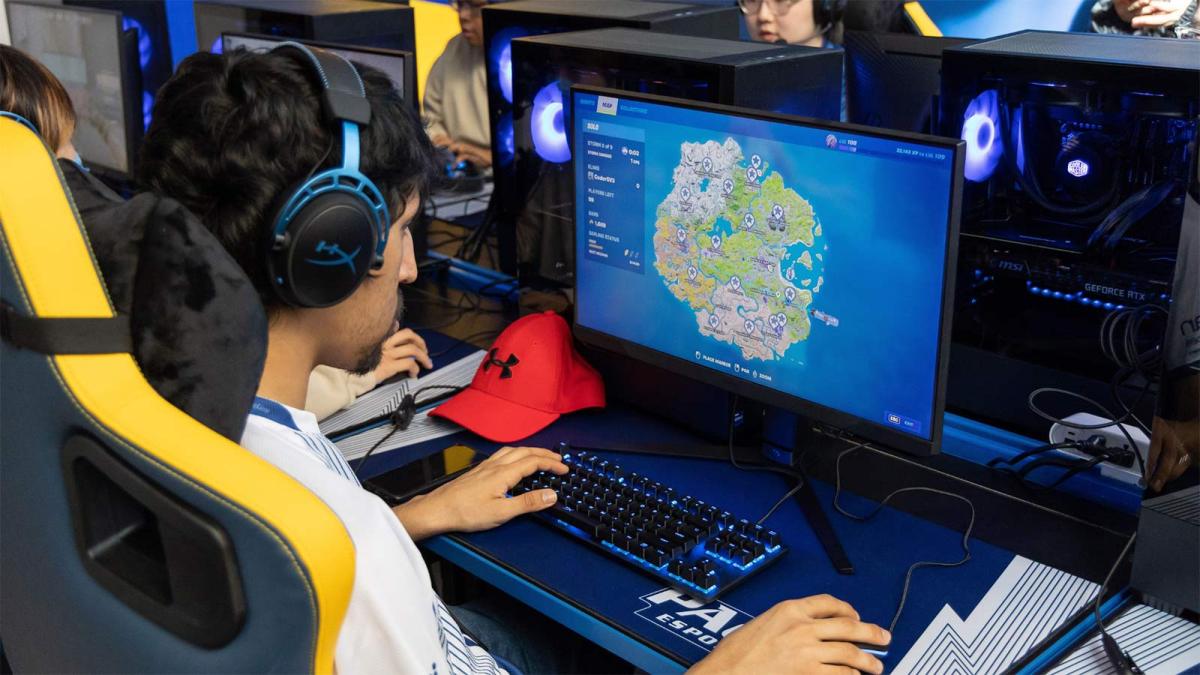
Pace Athletics announced Esports as its 15th varsity sport in December 2021. Currently, there are more than 500 members across both campuses that are a part of the Pace University gaming community, including players on Pace’s Varsity, Academy, Club, and intramural teams. The program entered its second official season after a successful inaugural year in spring 2022. The goal is for competitive and casual gamers to be able to connect with like-minded peers in online and offline settings. Pace Esports’ Smash Gold 2 team won the Eastern College Athletic Conference (ECAC) Open Division Grand Finals earlier this year, with just one match loss while finishing in first place out of 76 teams in their division. Pace Esports' All-Women's VALORANT Blue Team ("Pace Blue") recently placed third in the first-ever VENOM LAN event in Columbus, Ohio.
“I’m excited about what Esports, and more specifically this facility will mean for our institution. This space will allow us to reintroduce varsity athletics back to our Manhattan campus and impact that community in real significant ways; ways that only college athletics can achieve with respect to campus life and school spirit,” said Pace Athletics Director Mark Brown.
Pace student-athletes, faculty, staff were joined by Associate Commissioner, Workforce Development and Educational Initiatives at the New York City Mayor’s Office of Media and Entertainment, Alia Jones-Harvey, University President, Marvin Krislov, Director of Athletics, Mark Brown, Director of Esports, Jesse Bodony, founding partner Dov Horowitz, valued donors, and additional supporters of the program.
"Congratulations to Pace University on the unveiling of their new Esports arena, which builds on their work to bring together competitive and casual gamers," said Commissioner of the Mayor's Office of Media and Entertainment, Anne del Castillo. "We are thrilled to see this investment in digital games, which generates $2 billion in economic activity and over 7,600 jobs for New Yorkers."
“Esports is the fastest growing sport in the United States. It’s the fastest growing activity on Pace University’s campus, and why do we care about it? Because we care about you all,” said Pace President, Marvin Krislov, to student gamers in attendance. “We care that you are learning how to work together, that you’re competing, that you’re finding community, and there are going to be opportunities for you professionally and recreationally as well.”
“Esports means a lot to me because of the social freedom. I used to be an introvert before joining the Esports community. Now I feel more open to meeting new people and gave me the opportunity to be more competitive,” said sophomore Information Technology major and a member of the varsity All-Women’s VALORANT Blue Team, Kayla Reaves.
About Pace University:
Since 1906, Pace University has educated thinking professionals by providing high quality education for the professions on a firm base of liberal learning amid the advantages of the New York metropolitan area. A private university, Pace has campuses in New York City and Westchester County, New York, enrolling nearly 13,000 students in bachelor’s, master’s, and doctoral programs in its Dyson College of Arts and Sciences, Lubin School of Business, College of Health Professions, School of Education, the Elisabeth Haub School of Law, and Seidenberg School of Computer Science and Information Systems.
About Pace University Athletics:
Pace University Athletics is a member of NCAA Division II, competing within the Northeast-10 Conference (NE10). Pace Athletics sponsors 15 intercollegiate sports, along with cheer and dance teams and a Pep Band. Known as the Setters, Pace’s official mascot is known as T-Bone. In 2021-22, Pace student-athletes posted a cumulative grade point average of 3.33. Additionally, a total of 562 Setters were selected to the NE10’s Academic Honor Roll with 69 student-athletes earning Academic Excellence with 4.0 semester GPAs. Twenty-two student-athletes earned NE10 President’s Award for Academic Excellence, recognizing graduating student-athletes who have attained Magna Cum Laude at their institution, have participated in at least two seasons of NE10 competition and are current student-athletes at the time of graduation.
About The Seidenberg School of Computer Science:
At Pace University’s Seidenberg School of Computer Science and Information Systems, students experience a best-of-breed technology education at one of the first comprehensive schools of computing in the nation. Strategically located in the heart of NYC’s tech scene, the Seidenberg School places students on the doorstep of New York’s most promising companies, whether they are established tech giants or exciting new start-ups. Through partnerships with leading corporations, banks, federal agencies, and global entities, the school’s curricula and programs are designed to give students the latest in computer science theory and invaluable hands-on practice to ground it. The faculty includes numerous cybersecurity experts who operate labs and centers providing students with practical experience and connections that lead to impressive internships and jobs.
About American Technology Services:
American Technology Services was founded in 1994 to serve the IT needs of small and mid‐sized information-intensive organizations by providing a wide range of IT services. The premise for ATS was the notion that smaller organizations often have complex needs in IT, just like large organizations, but lack access to high-quality support. ATS’ objective has always been to provide high-quality IT services for our customers with a consultative approach. ATS’s high-quality technology services help clients tackle a broad spectrum of IT issues, from top-level strategy, managed services and infrastructure support, compliance, privacy, and security, to IT operations in the cloud and on-premises. The company helps clients address existing cyclical challenges, such as managing cloud migration and tackling associated security issues. Focused on IT field services, ATS leverages a detail-oriented solution architecture to aid clients in combating real-world IT problems and innovating and improving their IT operations.
Kit Connor and the dangers of queerbaiting accusations
"There is a vast difference between audiences raising legitimate concerns about exploitative, LGBTQ-mediated representations and queerbaiting, and the online trolling of Kit Connor," says Melvin Williams, associate professor of communication and media studies at Pace University.
Faculty Focus: Lissa Griffin
Professor Lissa Griffin has been a faculty member at the Elisabeth Haub School of Law at Pace University for 37 years and remains a fixture at Haub.
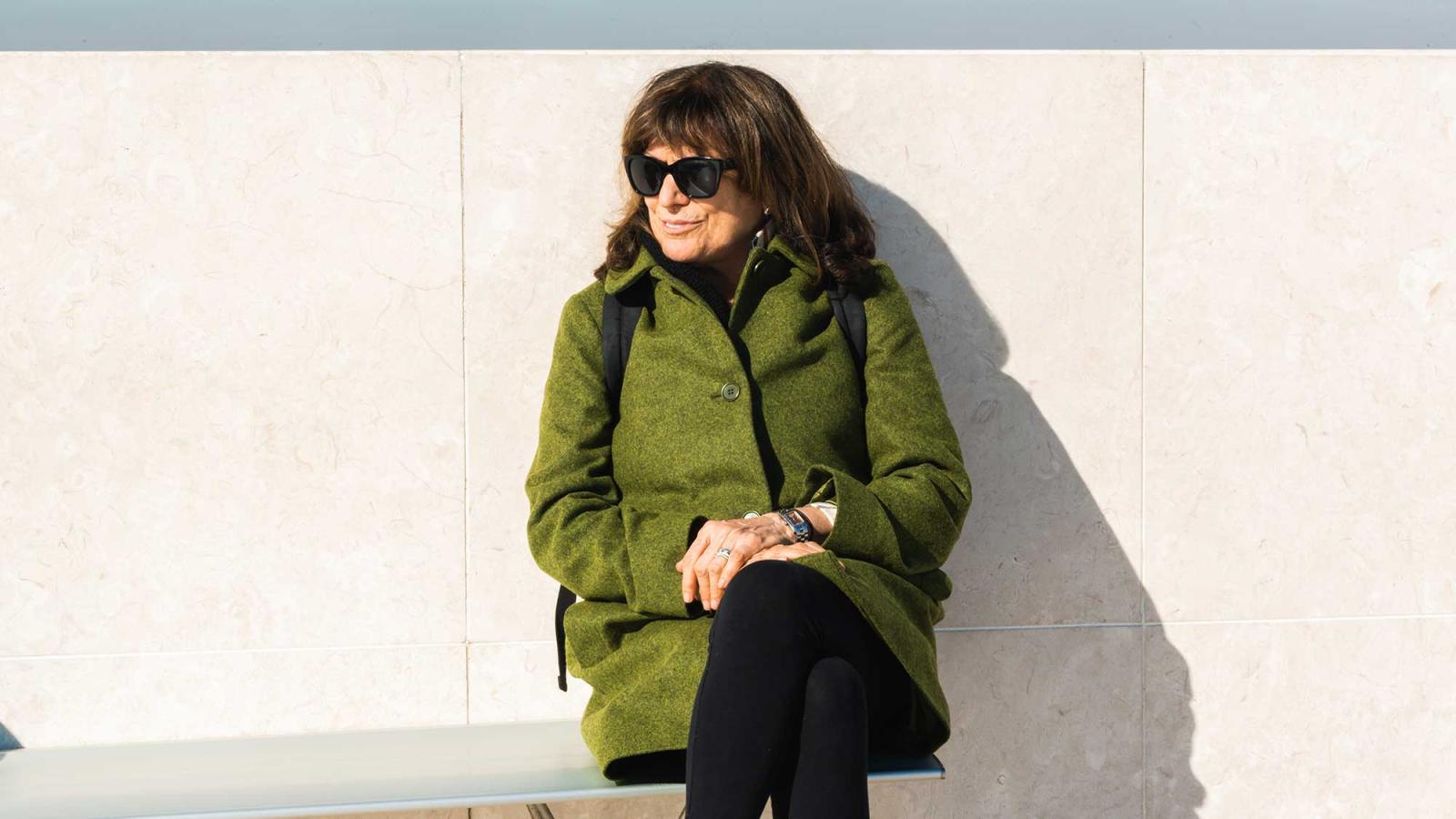
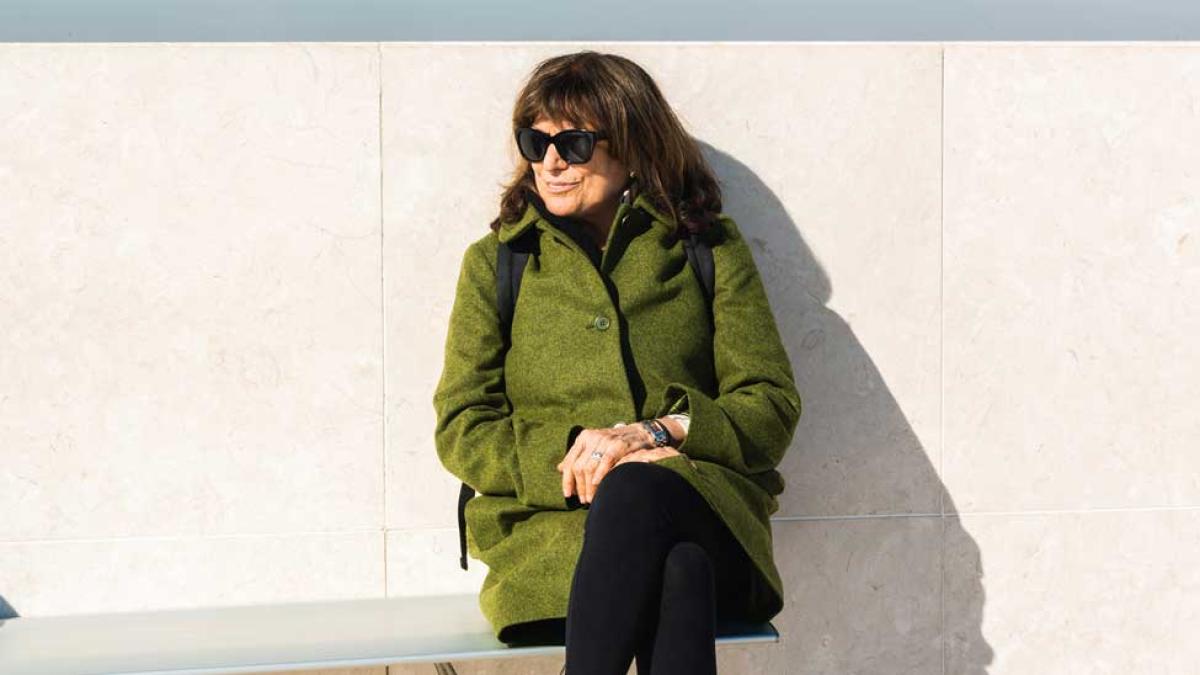
Professor Lissa Griffin has been a faculty member at the Elisabeth Haub School of Law at Pace University for 37 years and remains a fixture at the School. In 1985, Professor Griffin started working at what was then called “Pace Law” and today, she remains fully committed to the law school community. She teaches Professional Responsibility, Criminal Procedure – Adjudication, Comparative Criminal Procedure, and Evidence and is recognized for her scholarship in criminal procedure and comparative criminal procedure. She is also a visiting professor at Birmingham City University School of Law in Birmingham, UK. Learn more about Professor Griffin’s background, travels, scholarly work and more in the Q+A below.
What is your recent work in and out of academia?
Last year I was able to travel to Malaga, Spain as a Fulbright Scholar. I co-taught a course with two Spanish law professors called Fundamental Rights in the Criminal Process, which is much like our criminal procedure courses in the United States. I also participated in three conferences and presented weekly workshops to UMA’s PhD students. Teaching in a different country helped me reflect on my US classroom and was unbelievably rewarding. In addition, having been able to confer with Spanish criminal procedure scholars, practitioners, and prosecutors allowed me to see a completely new legal system unlike ours here in the United States.
Can you tell me more about your Fulbright Scholar experience?
When I originally applied to go to Spain, the coronavirus was at its peak and Spain was in particularly bad trouble. I knew Spain was one of the worst places to travel at the time, but I still took the risk and it paid off. Having worked and studied in the US and UK, which are both common law systems, I wanted to be exposed to a civil law system. In addition to teaching, while I was in Malaga I spoke at conferences and participated in presentations to PhD students and graduate students of all disciplines. I did quite a bit of work with the four other US Fulbright Scholars there, who came from different parts of the US and were in different disciplines and we were good collaborators and became good friends. The Spanish culture was an excellent and welcome contrast to the current situation in the United States: the sense of social cohesion and community in Spain is much different from the United States, whether that be professional, academic, or even personal. The experience of living within the Spanish culture was wonderful.
Did you take anything away from your experience abroad?
Yes, I’ve taught several times in the United Kingdom and those experiences and the time spent in Spain are transformative. In my teaching, I feel being exposed to different learning communities with different populations, expectations and relationships makes you more sensitive to your students. Understanding different criminal processes, both common law and civil law deepens your understanding and broadens your perspective. I’ve learned so much about criminal procedure and US criminal procedure first from being in the United Kingdom and then in Spain. Spain was particularly interesting to me because it is a civil law country with a very different domestic process and is also subject to European Union law and the European Court of Human Rights. All three sources of law contribute to the choices they make in structuring and administering their criminal process.
What was it like to participate in the International Criminal Judicial Cooperation Conferences?
In both, I was the only speaker who spoke in English and discussed US law. It was an honor to work with the other academics on the panels. In one of the conferences, I presented on the US jury and people were literally horrified at the power our juries enjoy. I am now writing a piece for a larger book comparing the US and Spanish jury systems.
What drew you into the world of criminal law?
Well that goes far back but the answer to that is that I think I’ve always been curious about outsiders. As a young child, cowboys fascinated me; in college, I veered toward the sociology of deviance. And like others who were children of the 1960s, the faceoff between the individual and the state has always been important to me and that happens directly in the criminal process.
Can you talk more about what you did before coming to Pace?
I started working for a private criminal defense lawyer and then moved to The Legal Aid Society’s criminal appeals office. Then I moved to a firm that worked specifically in civil litigation. At the time, the harm caused by asbestos had begun to lead to mass tort litigation, and my firm represented insurers who were litigating between and among the insurance companies to see who was responsible for paying the injured parties. I also handled appeals in medical malpractice cases on behalf of hospitals and doctors.
How did teaching at Pace come across your radar?
Someone I worked with had graduated in the first graduating class at Pace Law School and invited me to an alumni event to meet the then-dean, Janet Johnson. It turned out that Pace was looking for writing instructors and I started as a writing instructor in 1985. Shortly thereafter Pace started its clinical program and I supervised the Appellate Litigation. My students briefed and argued cases in the Appellate Division, First Department, in Manhattan, and in the New York Court of Appeals. As the School’s needs changed, I began teaching simulation and doctrinal classes. And with Professor David Dorfman, I created the Law School’s course on Interviewing, Counseling, and Negotiating. I guess one could say I’ve been a utility player. No matter what you are teaching, every course and every class is a new challenge.
No matter what you are teaching, every course and every class is a new challenge.
Tell me about the Pace Law London Program.
I went abroad to London with Pace three times: once in 1999, again 2002, and finally in 2012 with Professor McDonnell. My presence in England coincided with the opening of the first innocence commission in the world, the Criminal Case Review Commission, and I wrote several law review articles about it. I also began my comparative criminal procedure work, which has been my area of specialty for twenty-three years. When I was there in 2012, I developed a relationship with Birmingham City University School of Law, where I taught in 2019 and where I am currently a Visiting Professor. Teaching abroad really allowed me to absorb and reflect on so many levels, whether teaching, learning, and personally. And of course, having spent so much time in London when they were growing up, our children feel like it is a second home and know it as well as they know New York. Maybe better.
Would you recommend a study abroad experience to law students?
Always! It truly is a rich experience and will give you a different perspective on your life, your society, your values, and your profession. It may not change any of those things, but it will help you understand who you are and how you got there and what you want to do in the future.
What advice do you have for students interested in criminal law?
Read the news! There is so much going on every day in criminal cases. Ask yourself why what happened happened and if it should have happened in a fair and effective criminal process. Go abroad: see how other societies administer their criminal law so you realize there are many legitimate systems that are very different from ours. Besides that, participate in internships to build up your resume and to find out what really the field is all about. I also recommend that you pursue becoming a research assistant for a professor. There are so many great opportunities being a research assistant can bring forward such as a big network, jobs, publishing opportunities, and closer connections with faculty.
What are you looking forward to most this school year?
I always look forward to seeing the light bulbs go on in my students minds as we finish a course because in the end it DOES all come together. I am also looking forward to teaching a five-day course in Madrid at Comillas Law School, where four of our students are actually studying this semester, after our classes end in December. I am also teaching a Lawyering and Science skills workshop during January intersession that I haven’t taught since pre-COVID. The intersection between law and science is absolutely fascinating and helping students understand how to use science as lawyers is fun.
What is your favorite part of Haub Law?
Community. I have to say there has always been a supportive and close community not only for students, but for faculty as well. People care about each other and care about having a community that reflects those values, including devotion to the students and respect to one another. It truly does trickle down from the top.
What are your non-academic interests?
I love to travel. I love my dogs. I exercise almost every day, less because I like it than because it keeps me healthy. I exercise for two episodes of whatever series I’m currently watching, and so I’ve watched a lot of series. Lastly, I would say I am utterly devoted to my friendships. I have had friends for longer than 50 years; I have friends from college, and friends I made as an adult. Over time, I have come to understand how really important these friendships are.
Photograph by dave@verticalbird.com
Pace Students Curate Exhibit Featuring Historic News Photographs
Pace University Art Gallery is pleased to present, “Continued Relevance: New Photos from the George Stephanopoulos Collection.” The new exhibit, which opened today and will remain on view through January 28, 2023, features 54 images that were selected from a gift of more than 1,400 historic news photographs from the veteran news analyst and former White House communications director.
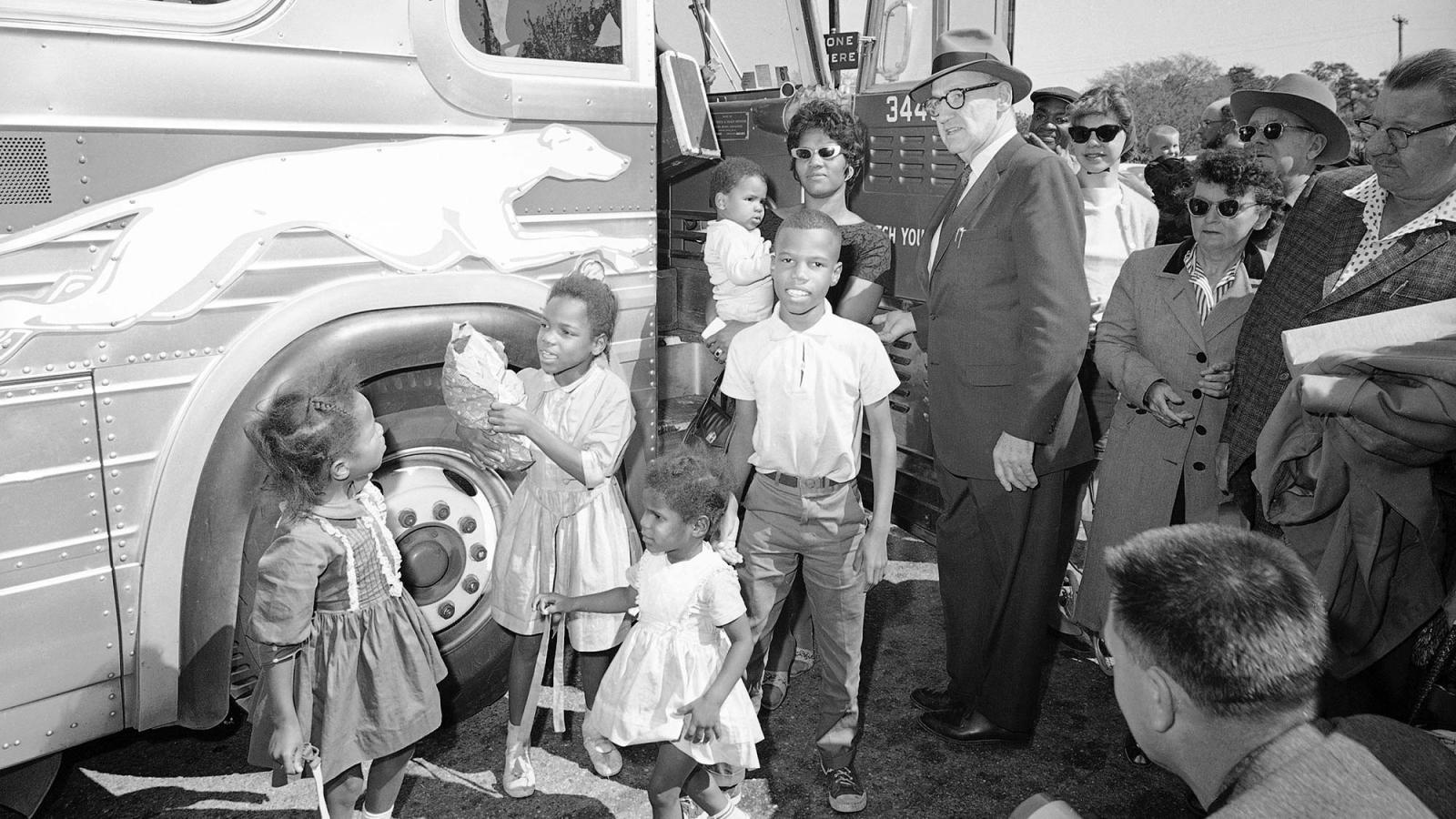
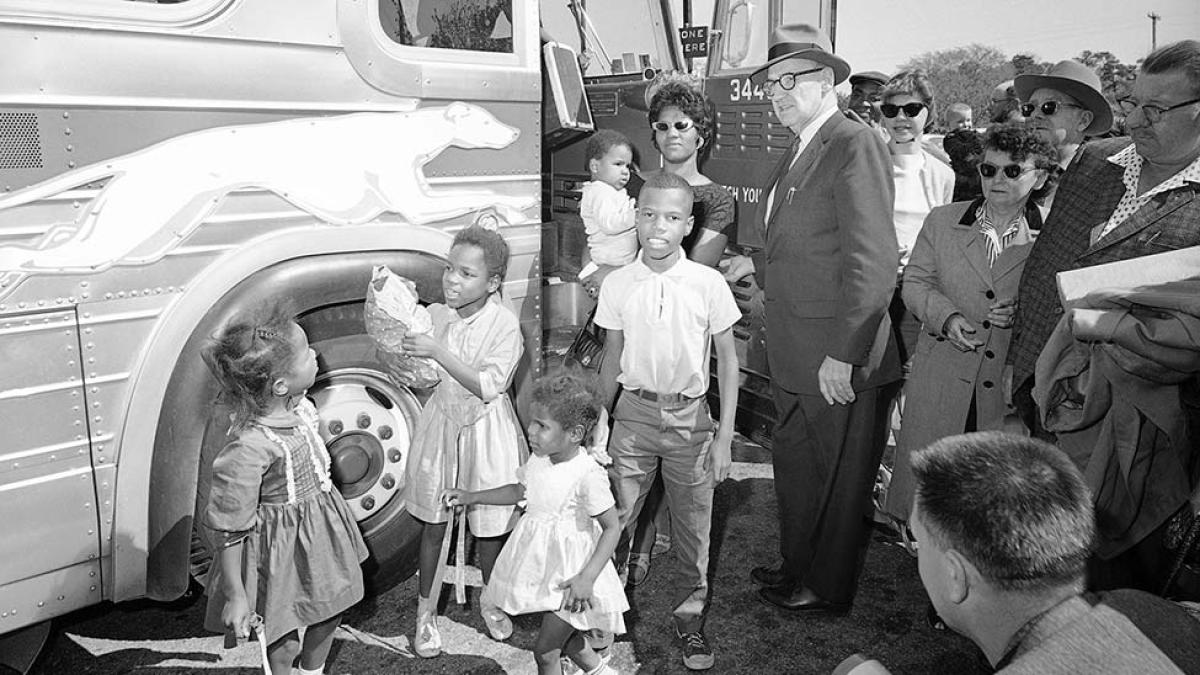
Images donated by veteran news analyst George Stephanopoulos
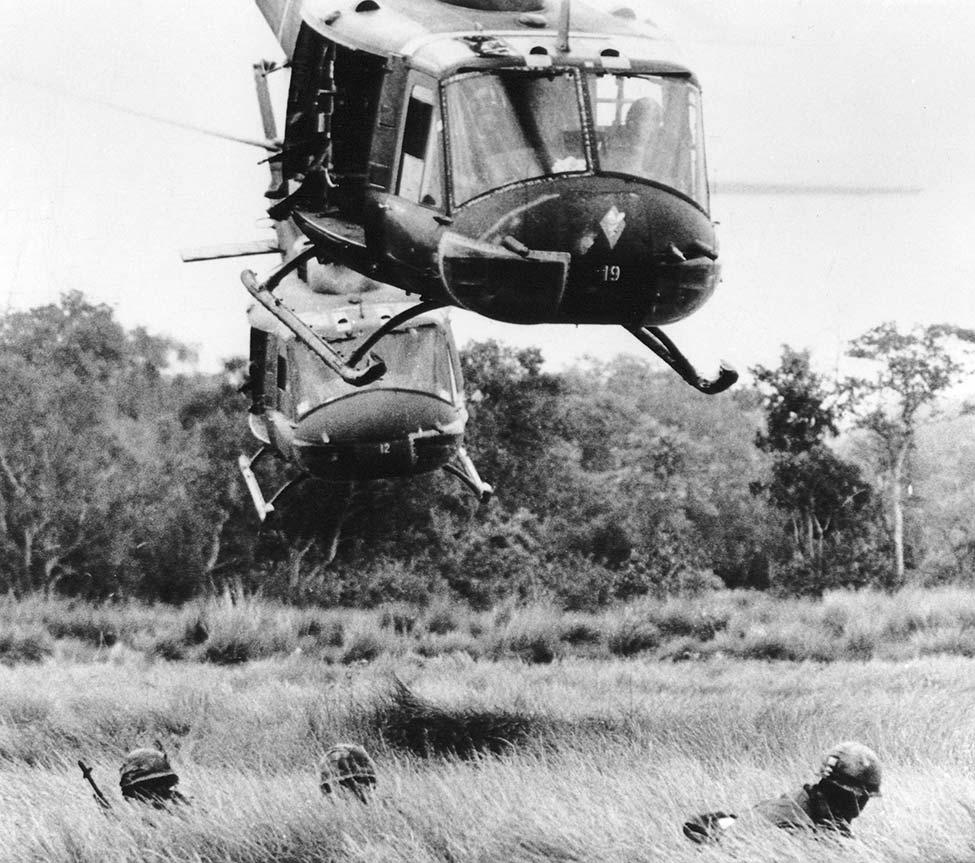
Pace University Art Gallery is pleased to present, “Continued Relevance: New Photos from the George Stephanopoulos Collection.” The new exhibit, which opened today and will remain on view through January 28, 2023, features 54 images that were selected from a gift of more than 1,400 historic news photographs from the veteran news analyst and former White House communications director.
The collection, which features legendary photojournalists of the 1960s and 1970s working for major news agencies such as the Associated Press, ushers in a new era for the Pace University permanent art collection.
It was curated by students in three courses at Pace University—Introduction to Museum and Curatorial Studies, Documentary Photography, and - Current Media in New York. The students—under the expert guidance of their respective professors Sarah Cunningham, Inbal Abergil, and Emilie Zaslow—have selected a small, but representative, sampling of the collection which suggests the myriad possibilities for future educational use, historical analysis, and artistic appreciation.
“To experience this show is to get a strong sense of the entire Stephanopoulos collection,” says Kim de Beaumont, curator of Pace’s Permanent Art Collection. “Turn a few pages in the binders where most of the photographs are currently housed, and you veer from tragedy to banality to frivolity and back again, from corruption to idealism, from violence to resilience; turn another few pages, and you veer from celebrity profiles, whether notorious or noteworthy, to the quiet courage of now nameless individuals in the face of unspeakable fates.”
While each student chose a single photograph for the exhibit, viewed collectively the images tapped into many of the overall collection’s key themes including the Civil Rights Movement, the Kennedy years, the Vietnam war, and the protests it engendered. Likewise, students chose works by noted photographers of the era including Eddie Adams, Richard Avedon, Dang Van Phuoc, Horst Faas, Gene Herrick, Joe Holloway Jr., W. Eugene Smith, Jack Thornell, and Sabine Weiss. To accompany their selection, each student has written a personal commentary placing the image into meaningful contemporary context.
In depicting the past, the photographs as interpreted by the student curators challenge viewers to consider our present. For example, after researching the Reverse Freedom Riders by Frank C. Curtin, which depicts a Southern Black family being relocated to Massachusetts in a political stunt that has parallels to recent migrants being bussed north by Southern governors, Documentary Photography student Hasan Akinyele ’23, says, “The story itself depicts a blatant lack of empathy for human lives in the past and the present; human lives are not pawns.”
About the Pace University Art Gallery
Founded with the conviction that art is integral to society, the Pace University Art Gallery is a creative laboratory and exhibition space that supports innovation and exploration for both artists and viewers. Open to students, staff, and faculty from across the Pace campuses and, equally, to the Lower Manhattan community and visitors from around the world, the Art Gallery encourages personal investigation and critical dialogue via thought-provoking contemporary art exhibits and public programming. Enhancing the Art Department's Bachelor of Arts and Bachelor of Fine Arts programs, the Art Gallery offers students real-world opportunities to exhibit their own art and to work directly with professional artists to install and promote exhibitions.
About Dyson College of Arts and Sciences
Pace University’s liberal arts college, Dyson College, offers more than 50 programs, spanning the arts and humanities, natural sciences, social sciences, and pre-professional programs (including pre-medicine, pre-veterinary, and pre-law), as well as many courses that fulfill core curriculum requirements. The College offers access to numerous opportunities for internships, cooperative education and other hands-on learning experiences that complement in-class learning in preparing graduates for career and graduate/professional education choices.
About Pace University
Pace University has a proud history of preparing its diverse student body for a lifetime of professional success as a result of its unique programs that combine immersive academics and real-world experiences. Pace is ranked the #1 private, four-year college in the nation for upward economic mobility by Harvard University’s Opportunity Insights, evidence of the transformative education the University provides.
Funny Business
Arts and Entertainment Management student Ashvin Kapoor '24 found an outlet for the challenges he faced during a time of uncertainty at Pace University's radio station, WPUB.

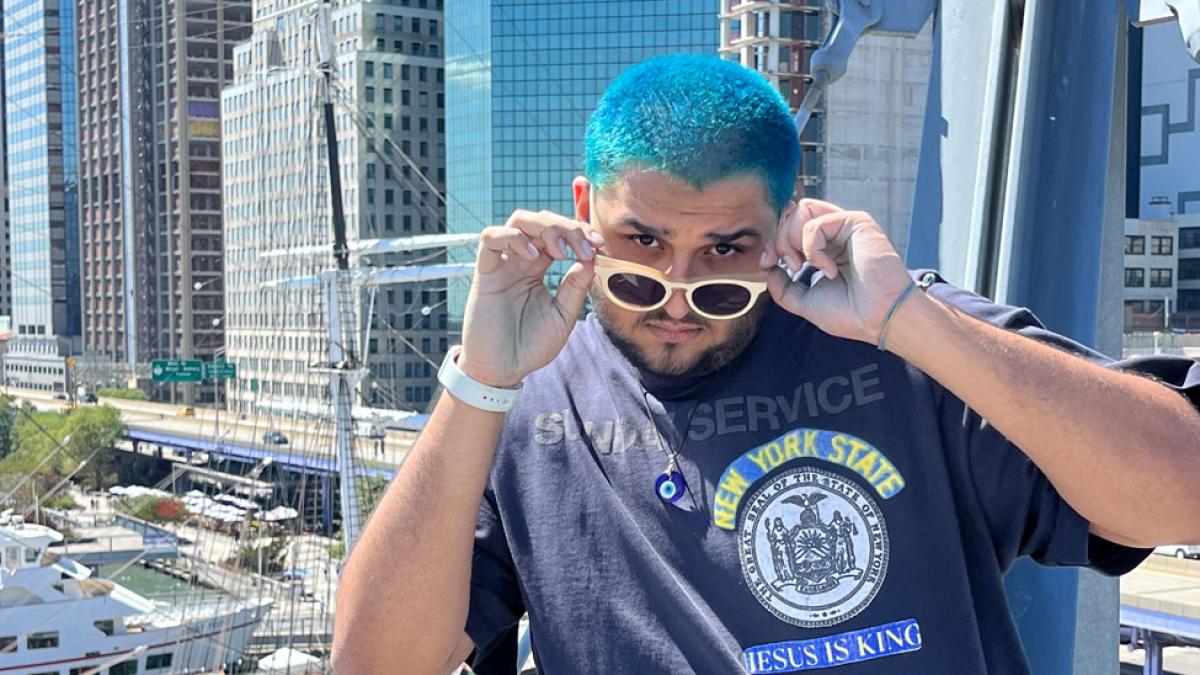
Ashvin Kapoor
Class of 2024
Currently Studying: BBA in Arts and Entertainment Management
Member Of: The Industry Network (Vice President), WPUB Radio
Pronouns: He/Him/His
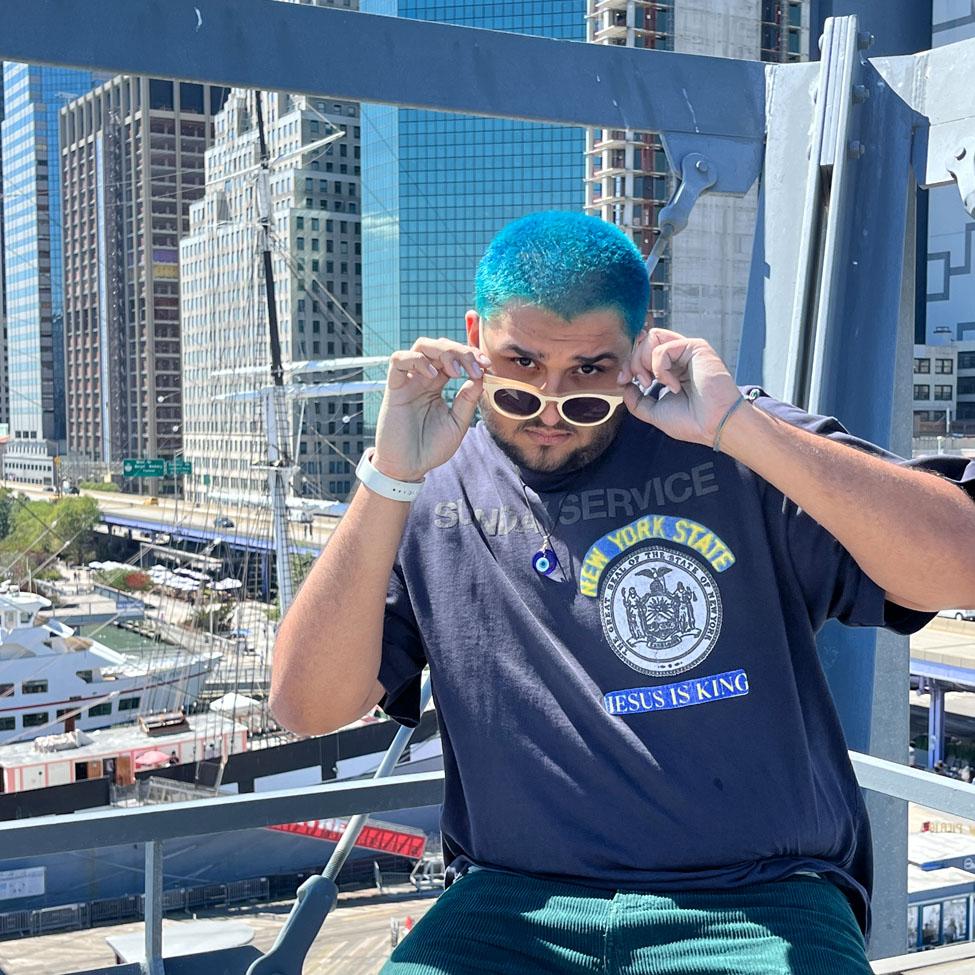
For many students, the beginning of the COVID-19 pandemic meant an added layer of concern and stress to campus and college life—and life in general. Arts and Entertainment Management student Ashvin Kapoor was no exception to those feelings, but thanks to Pace University's radio station, WPUB, he found an outlet for the challenges he faced during a time of uncertainty. Ashvin now plans on using his degree from the Lubin School of Business and his passion for comedy to bring smiles and laughs to those around him.
Why did you choose Pace University and the Lubin School of Business?
My parents went to Pace, but it wasn't until I saw more information about the Arts and Entertainment Management program that I was convinced. The program was so enticing and captured every aspect I could ask for in an education. It wasn't until my parents came and visited the school that they realized Pace was not the same Pace they went to. I chose Pace because I knew it was the right school for me.
My parents went to Pace, but it wasn't until I saw more information about the Arts and Entertainment Management program that I was convinced. The program was so enticing and captured every aspect I could ask for in an education.
How have clubs on campus helped enrich your student experience?
In collaboration with The Industry Network, I have been able to host The Ashvin Show Live, an immersive fan experience where we perform The Ashvin Show Live for an audience. Through the Industry Network, I've been able to expand my show to great lengths and have been able to make great strides in my goals.
How has the Pforzheimer Honors College benefitted you?
The Pforzheimer Honors College is amazing because it has given me a resource of people that I know can help me. I know that if I need anything—whether it's help with school, a place to study, or even a way to make friends, they'll be there for me. Sometimes college can feel very isolating and the Honors College is definitely a great way to fight this.
You host a comedy show, The Ashvin Show Live, on Pace's radio station, WPUB. What inspired you to start your own show?
When COVID started, I just stopped creating. There was too much going on and I was just not able to be creative. I saw an ad for WPUB during the COVID semesters, and at the time, having a radio show was the only thing you could do, so I signed up. I did a couple of episodes, but didn't really think about it. Over that summer, though, I was inspired to start The Ashvin Show Live because I felt lost. Simply put, I had no idea what I was doing with my life. I had my major declared, but I had no idea how to channel my creativity. I decided to take all of my mental challenges and channel it into the show, and the rest is history. The Ashvin Show Live saved me.
How can your business background from the Lubin School of Business help you achieve your future dreams?
My dream is to do The Ashvin Show Live on a bigger scale and with a bigger platform. My business background helps me because I'm not only thinking about everything from the perspective of a creator, but also from the perspective of a manager. I am able to control all aspects of the show and let them blend together. When I write a sketch, I'm not only thinking about what's funny, but I'm also thinking about how I can market it to others and how I can help my content reach more audiences.
What has been your favorite opportunity at Pace?
My favorite opportunity at Pace has been being a member of The Industry Network. The Industry Network has helped me meet new people and meet industry professionals.
Do you have any advice for other Lubin students?
Don't be afraid to talk to anyone and to be yourself. Some people won't like you, but you're bound to find someone who does.
What does #LubinLife mean to you?
#LubinLife is everything that connects all of us Lubin students together in this wonderful school we call Pace.
Connect With Ashvin:
LinkedIn: Ashvin Kapoor
Instagram: @ashvingoddamnkapoor
Listen to the The Ashvin Show Live
More from Pace
Lubin School of Business student Isaiah Jimenez fell in love with Pace's entrepreneurship program–now, he's running two businesses, even before graduation.
Pace University’s Lubin School of Business, in collaboration with AnD Ventures, recently launched the Pace Entrepreneurship Studio (PES) with an opening reception. PES will position the University as a leading institution for cultivating entrepreneurship and innovation in the tri-state area.
Lubin Professor Larry Chiagouris discusses Monster’s latest drink as the beverage industry sees similarities to other major brands’ short-lived products.
Prestigious 2022 Elisabeth Haub Award for Environmental Law and Diplomacy Presented to Brazilian Environmentalist Paulo de Bessa Antunes
The Elisabeth Haub School of Law at Pace University has conferred the 2022 Elisabeth Haub Award for Environmental Law and Diplomacy on Professor Paulo de Bessa Antunes, an environmental scholar and leading professor of environmental law at Universidade Federal do Estado do Rio de Janeiro, and head of the Environmental Practice of Campos Mello Advogados (Brazil).
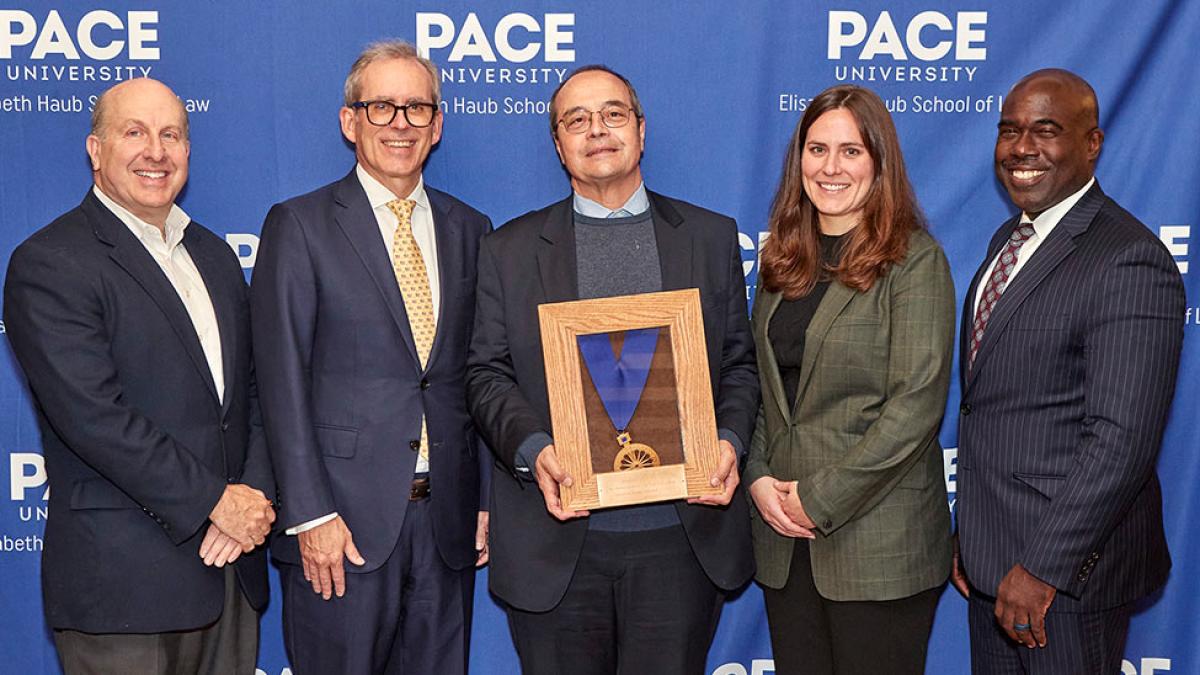
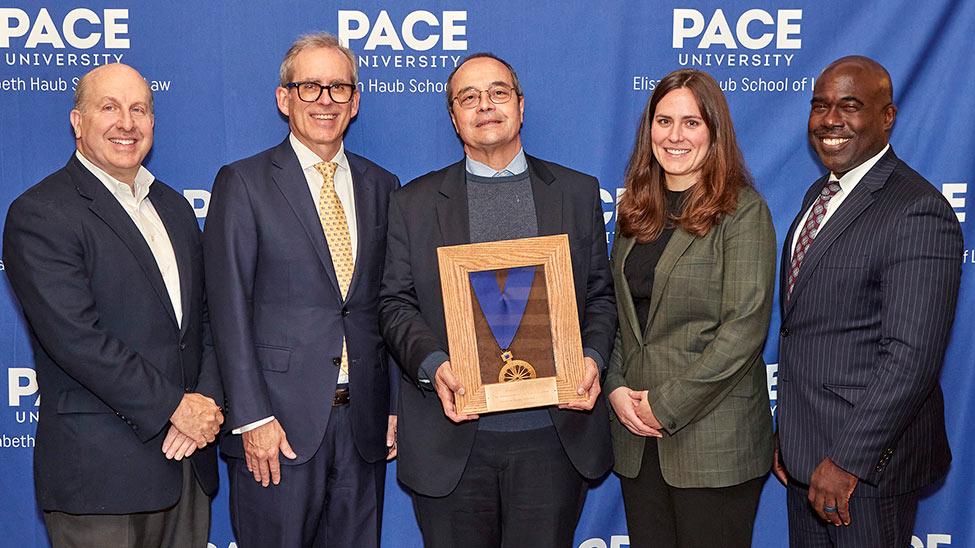
The Elisabeth Haub School of Law at Pace University has conferred the 2022 Elisabeth Haub Award for Environmental Law and Diplomacy on Professor Paulo de Bessa Antunes, an environmental scholar and leading professor of environmental law at Universidade Federal do Estado do Rio de Janeiro, and head of the Environmental Practice of Campos Mello Advogados (Brazil).
The award was presented on Tuesday, November 8 during an in-person ceremony at the law school and broadcast to supporters from across the globe representing more than 10 countries.
This year’s award highlighted the Amazonian crisis and the rule of law in Brazil and included a timely discussion with the laureate, led by Professor David Cassuto, Director of the Brazil-American Institute for Law and Environment (BAILE) at the Elisabeth Haub School of Law at Pace University.
“We are honored to present the 2022 Elisabeth Haub Award for Environmental Law and Diplomacy to Professor Bessa, who has been valiantly fighting to support the development and implementation of laws protecting the environment in Brazil, including protecting the Amazon against deforestation,” said Horace E. Anderson Jr., Dean of the Elisabeth Haub School of Law.
Professor Bessa is considered one of the founders of Brazilian environmental law. He began his career as a member of the Federal Prosecutor's Office and was the first coordinator of the defense of the environment in the State of Rio de Janeiro. During his three decades in the Federal Public Prosecution Service, he used fledgling environmental laws and theories to file and win several seminal lawsuits to protect the environment. These lawsuits resulted in the establishment of the Reserva Beach protected area in Rio de Janeiro; the destruction of highly toxic PCBs so that they were not released into the environment; and the abandonment of plans to construct a bridge in indigenous territory over the objection of the indigenous Xerente. Professor Bessa is also a highly respected legal practitioner and a leading scholar of Brazilian environmental law, having authored more than 280 publications in the fields of environmental law, justice, and human rights.
During the program, Professor Bessa spoke about the most urgent environmental threats to the Amazon and explained its significant impact on global climate change, pointing out that 7 of 10 greenhouse gas emissions come from the Amazon. “It is becoming clear to scientists that maybe the Amazon is emitting more greenhouse gases than it is capturing from the environment,” he said. He acknowledged several factors contributing to this crisis, including fires and deforestation which account for about 50 percent of greenhouse gas emissions. Professor Bessa spoke to how Brazil has played an important role in advocating for mechanisms for climate change with international treaties and is quickly changing to renewable energy. “I believe that we will play a bigger role in the next administration,” he added.
He also spoke about the ways that Brazil has recently strengthened its conservation efforts by establishing more protected areas, increasing the number of regulations protecting indigenous people, and creating a set of environmental regulations and legislation. Yet, he pointed out, that Brazil’s greatest challenge is a lack of funding and infrastructure to enforce these laws. He said that biotechnology, understanding of the forest and special knowledge of the indigenous community will be essential to the future. “This will be the main question that the new administration should address within the international community,” commented Professor Bessa.
The Elisabeth Haub Award for Environmental Law and Diplomacy is the world’s most distinguished award in the field of environmental law. The award was created in 1997 by the Elisabeth Haub School of Law at Pace University, in cooperation with the Haub Family, to honor the legacy of Elisabeth Haub (1899 – 1977), a noted philanthropist and advocate for strong laws for the conservation of nature. The award is chosen annually by an esteemed jury of leaders in environmental law and was first established to commemorate the 25th anniversary of the United Nations Stockholm Conference and the 5th anniversary of the United Nations Rio de Janeiro Earth Summit.
“Through this award, for 25 years, we have recognized the diplomats, policy makers, lawyers and activists who have sought to protect our environment through the rule of law, the cooperation of world governments and the group efforts of advocates across the globe,” said Christian Haub, businessman, philanthropist and grandson of Elisabeth Haub, who presented the award along with his daughter Anna-Sophia Haub, who also serves on the board of advisors for the Law School’s Sustainable Business Law Hub. “It is our hope that with this award, we are making a statement in support of those individuals and communities who are fighting to create a more sustainable planet.”
Learn more about the 2022 laureate and watch the video of the program below.
From Mentee to Mentor, A Rewarding Journey
At the age of 16, she moved to the United States for the opportunity to go to college and obtain a nursing degree. After earning an associate and bachelor’s degree in nursing, she knew that she still wanted to learn more. Following the recommendation from a friend and the convenience of New York City and Pleasantville, she decided to check out what Pace University and the Lienhard School of Nursing had to offer.

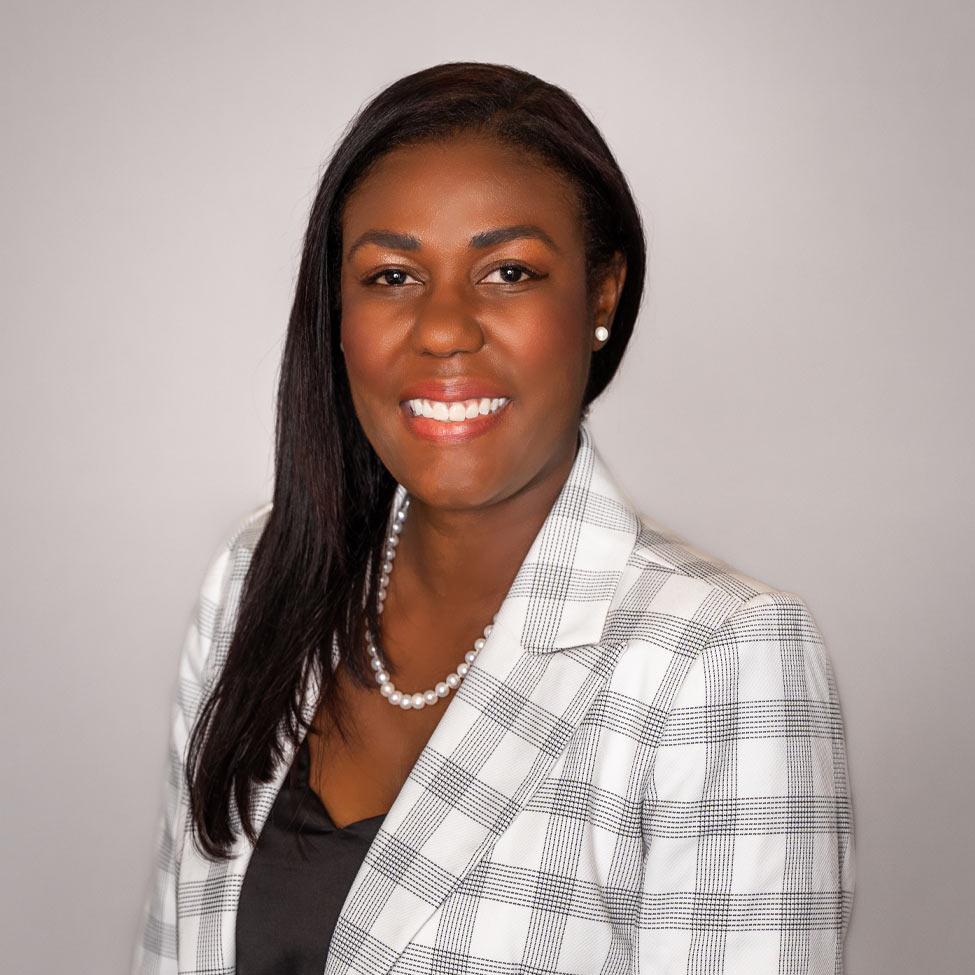
Pace University’s College of Health Professions alumna, Paule Valery Joseph, PhD, MS, FNP-BC, FAAN, found her passion for nursing and healthcare at a young age. Her journey of becoming an exceptional nurse scientist with multiple advanced degrees started from studying her mother’s career as the community nurse in their town in Venezuela. She recalls that as a child she did not understand much of what her mom did but watching her provide care for individuals in the community ignited a light inside of her to follow in her footsteps. As a now, first-generation PhD, she realizes the importance of having strong mentors from the beginning of an educational journey.
At the age of 16, she moved to the United States for the opportunity to go to college and obtain a nursing degree. After earning an associate and bachelor’s degree in nursing, she knew that she still wanted to learn more. Following the recommendation from a friend and the convenience of New York City and Pleasantville, she decided to check out what Pace University and the Lienhard School of Nursing had to offer. “I discovered that Pace had a curriculum with an emphasis in evidence-based care and an extremely fascinating course that Joanne Singleton, PhD, RN, FNP-BC, FNAP, FNYAM, FAAN, was teaching about cadaver dissection. It was the only nurse practitioner program that offered this particular course. Because of my love for biology, I knew this was where I was meant to be,” said Dr. Joseph.
She credits her faculty mentors at the Lienhard School of Nursing for motivating her to begin furthering her experience in research. In addition to Dr. Singleton, she expressed her gratitude towards Dean Emerita Harriet Feldman, PhD, RN, FAAN; Former Provost Marilyn Jaffe-Ruiz, EdD, RN; and Sandra Lewenson, EdD, RN. Dr. Joseph went on to explain, “It was my first experience working closely with university scholars and I learned so much from them. I had the opportunity of working with Dr. Jaffe-Ruiz and Dr. Feldman on research projects and on the Jonas Project.” As an LSN student, Dr. Joseph took advantage of every opportunity that crossed her path, including working with both Dean Emerita Harriet Feldman and Dr. Marilyn Jaffe-Ruiz on the book Nursing Leadership: A Concise Encyclopedia. “It was my first exposure to working with nurse scientists on a publication and I was able to contribute to several chapters and start developing my scholarship.” Through the Jonas Scholar implementation grant, she was awarded $500 to teach cultural competency—the ability to communicate with, understand, and effectively interact with people of all cultures—to nurses at Mount Sinai Hospital in NYC. “Despite its relatively small size, the grant served as a steppingstone, and made a meaningful impact in my career. It was my first award- my first grant that was peer-reviewed,” Dr. Joseph remarks. “I learned early on as a student that it is important to seize every opportunity you can and apply for grants and scholarships. It’s empowering to be peer-reviewed at that stage and realize that your ideas are valued.”
I learned early on as a student that it is important to seize every opportunity you can and apply for grants and scholarships. It’s empowering to be peer-reviewed at that stage and realize that your ideas are valued.
Her intention was to begin practicing after completing the Pace Family Nurse Practitioner (FNP) program before applying to a doctoral program. However, the four inspiring nurse leaders she credits encouraged her to go for it. Dr. Joseph followed their advice and continued her educational journey at the University of Pennsylvania to earn her PhD in Nursing with a focus in Genomics. “I thought that I would be studying nursing history, based on my experience at Pace in Dr. Lewenson’s course The History of Nursing. This journey gave me the opportunity to dabble between nursing history and basic biology. My curiosity about the human body pushed me to study more about chemosensory disorders and diseases,” she explained. Her desire to study Genomics was influenced by Dr. Singleton’s course, “The classes I took at Pace intrigued me and prompted me to ask more questions, this led me to focus my studies in a more basic science area.”
Although Dr. Joseph chose an uncommon path of study, it positioned her as one of the few experts qualified to answer the many smell and taste questions that arose during the COVID-19 pandemic. “One of the things that I am very passionate about is the ability to create treatment modalities for patients and therapies that might not be pharmacological but that can help patients cope and have a better quality of life,” she said. “The more we understand, the more we can help people have better quality of life, connect better with the world around us, and develop relationships with those seeking guidance.”
Besides her research, Dr. Joseph is committed to different philanthropic initiatives around the world. She has a firm belief that when children are provided a healthy lifestyle in their early, formative years, it can change the future of a nation. She is heavily involved in the Amazing Grace Children’s Foundation, a project extremely important to her because their mission is to bridge access to medical care for children and women in low resource, under-served populations in Ghana and neighboring communities. As a nurse practitioner, she can provide the necessary care in these remote areas where the resources are very limited. To Dr. Joseph, this kind of work is unmatched because of the impact that they have on those families every single year. “Working with the Amazing Grace Children’s Foundation saved me at a time that was very difficult for me, it opened my eyes to ways in which I could use my skills to impact global health. The amount of learning that I have been able to acquire from this experience and how much I have learned from the people in the community helped me to see the world through a different lens,” she said. She believes nursing has opened doors and windows of opportunities for her, “Nursing is a wonderful profession, filled with many opportunities. We can have our voices heard and be active change agents.” She hopes that others realize of the impact and power (we) nurses have to create local and global change.
One of the most rewarding aspects of her career is watching her mentees and students achieve their goals and knowing that she has helped them is an amazing experience. Her advice to students is to have a mentor, ask questions, believe in themselves, and never be afraid to strive for more. To continue advising future leaders in healthcare, she expressed that she is always more than happy to guide anyone interested in this career by sharing her experiences and answering any questions to help keep them on the right path. “Being visible and available to share my experiences to those who want to do this type of career is very important. The path is not straight, nor is it ever perfect. I did not just wake up one day and become a scientist. It’s a lot of hard work and crucial to developing who you will become. The ability to be able to share these experiences with others is priceless in so many ways.”
Pace University’s College of Health Professions (CHP) is honored to welcome distinguished alumna, Paule Valery Joseph, PhD, MS, FNP-BC, FAAN, as the guest speaker for the CHP Faculty Colloquium and Reception, November 14, 2022. CHP would like to congratulate her on receiving the Brilliant New Investigator Award from The Council for the Advancement of Nursing Science and for being selected as the Inaugural AAN Fellow at the National Academy of Medicine.
More from Pace
Who is going to address the Class of 2024? You tell us! The annual speaker and honorary degree recipient nomination process has opened so be sure to submit your nomination no later than Friday, October 27.
There is a saying that beauty is in the eye of the beholder and according to Dawn, beauty is also expressive. Aesthetics has allowed her to make others’ dreams come true, and to her that is an art.
Pace's faculty are working across disciplines to address the health needs of today.
Donald Trump Settles Personal Injury Lawsuit After Attorney Says He ‘Stared at the Barrel of a Bronx Jury’
Law professor says Trump ‘is not loved in the Bronx’ “I’m a civil rights attorney. If I can bring a case to the Bronx, I’ll move heaven and earth,” said Randolph McLaughlin, Pace University law professor and co-chair of Newman Ferrara LLP’s civil rights practice group The guard. “Bronx juries, they deal with Robinhoodism. They take from the rich and give to the rest of us – their judgments are generally always right on the ceiling.”
